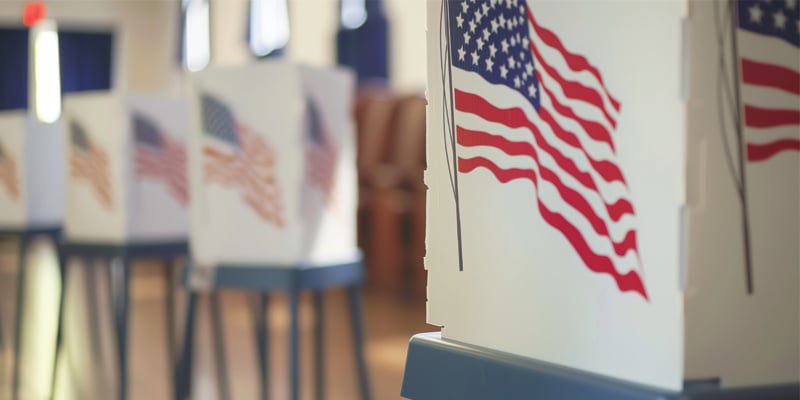Politics can be a source of stress for many people. Stress can be heightened during an election year. So far in 2024, there has been an attempted assassination, and a presidential candidate dropped out of the race. Those two major events don’t include the constant election-related news stories in the media.
While the election isn’t until November, it’s important to focus on your mental health and be aware of your stress and anxiety levels as the election gets closer.
“There are two potential sources of anxiety relating to the election: there’s anxiety around the unknown and uncertainty about what’s going to happen, and then there’s stress and anxiety around the outcome of the election, especially among those who identify with the party or candidates who are not elected,” Kerry Peterson, PhD, DNP, PMHCNS-BC, PMHNP-BC, says.
Peterson is the specialty director of the Psychiatric Mental Health Nurse Practitioner Program and an associate professor of clinical teaching at the University of Colorado College of Nursing at Anschutz Medical Campus. She says research supports the election’s impact on stress and anxiety. One survey from May 2024 reported two-thirds of Americans said the election was a major source of stress.
“It’s really important for people to know when they’re feeling overwhelmed and for them to be able to seek help,” she says.
Prolonged Stress & Setting Boundaries
Media coverage of the election is 24/7. There’s constant exposure – whether it’s on TV, social media, online, or even in daily conversations.
What’s one way to cut down on the constant election coverage? It’s simple: set boundaries.
“It’s important to limit your exposure to some of the election coverage if you are feeling really stressed about it,” Peterson says. “But it’s also important to not completely disengage in order to stay informed and make sure you have accurate information. You want to be engaged in voting and the process of our democracy, but it’s also a significant source of stress when we’re getting constant media coverage.”
Something else to consider is finding a good balance and focusing on self-care.
“Make sure you take time to disconnect from the constant coverage. Take breaks and take a step back,” she says. “You should engage in self-care and know when you need to relax or do something you enjoy doing, like a hobby or exercise.”
Signs Your Mental Health is Struggling |
|
Focusing on Your Mental Health
It’s normal to have some stress, uncertainty, and worry surrounding the election. But when it starts to impact your daily functions or relationships, that’s a sign to take a break. And if it gets worse – you should consider getting professional help.
“(Some signs of mental health struggles are) when people are having symptoms of anxiety or depression such as feeling constantly anxious, worrying to the point where they can’t function, or feeling hopeless or excessively sad,” Peterson says. “Other symptoms might be feeling withdrawn, loss of interest, increased irritability, sleep disturbances, or not being able to get through your daily activities. Those are signs someone needs additional mental health support.”
Peterson says before seeking formal (or professional) help, it might be useful to talk to your friends and family.
“You could talk with someone who you can share your feelings around election stress with; someone you feel will empathize and won’t lead to confrontation,” she says. “So make sure you’re talking to the right person who will listen and offer support.”
She says it’s important to remember that the election is stressful for a lot of people, so understanding and support should be in abundant supply.
“We all need to let people share how they’re feeling, and we need to be there for our family and friends even if we don’t necessarily have the same political views,” she says. “Most Americans are likely experiencing some level of stress because of the political climate in this country.”
Seeking Professional Help
Peterson suggests for professional help, people should consider seeking out a psychiatric mental health nurse practitioner, a therapist, or ask a primary care doctor.
“Frequently, people have access to a variety of services and resources through school or their employer. It often allows individuals to have a few covered mental health sessions even if they don’t go through insurance,” she says. “There are lots of different avenues for seeking out professional mental health care.”




